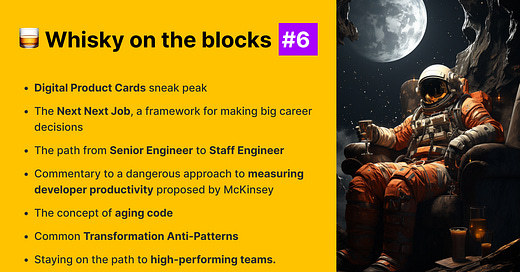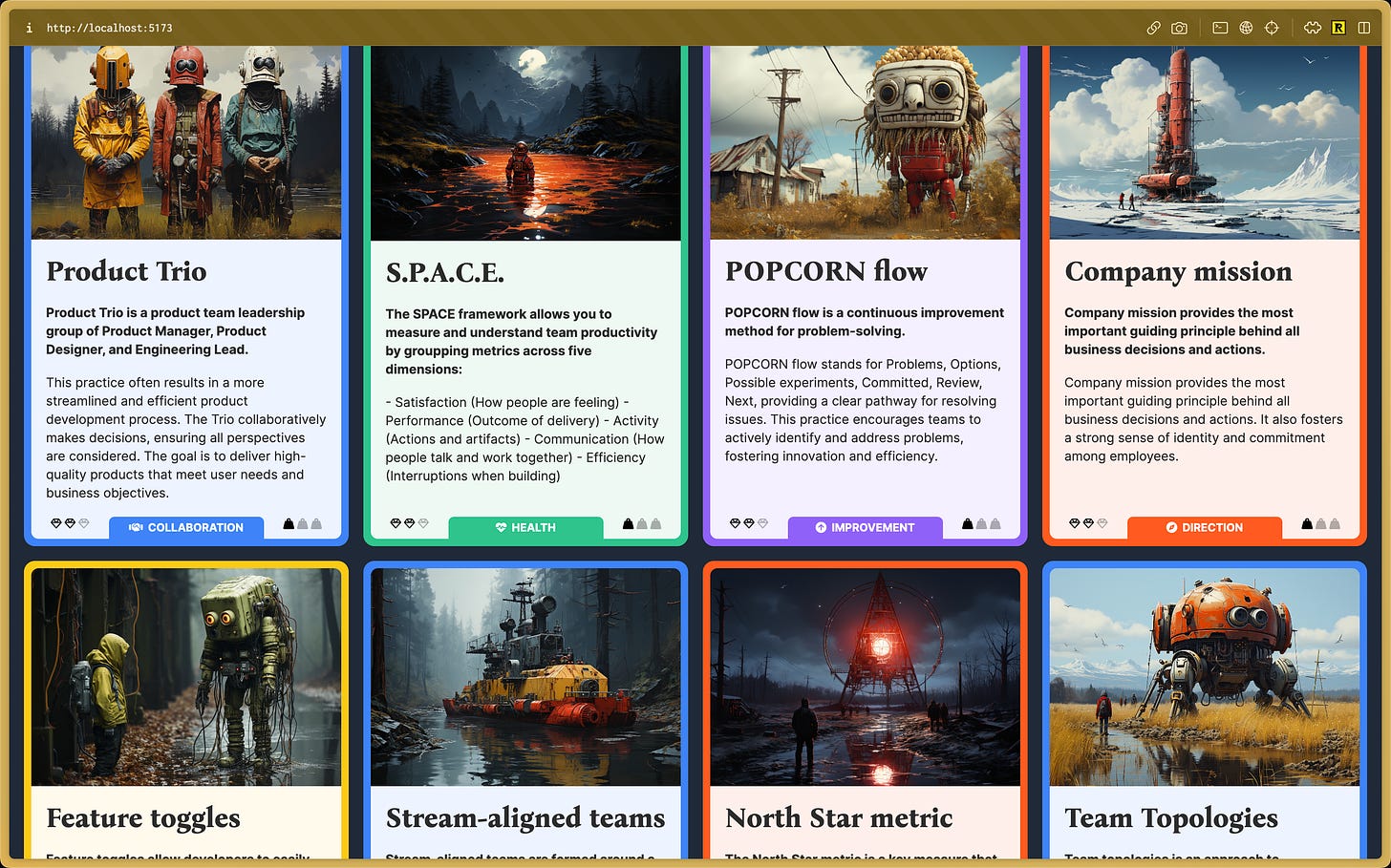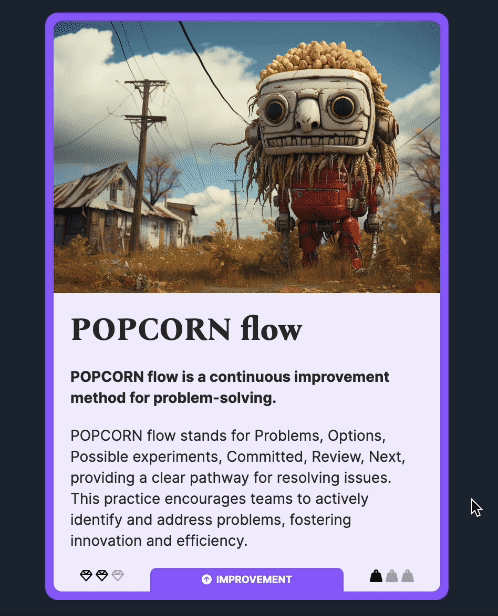🥃#6 - Digital Product Cards preview, Framework for making big career decisions, Aging Code, Senior → Staff Engineer and more
Welcome to this week's edition of 🥃 Whisky on the Blocks, highlighting the latest updates to Product Cards and the best findings for the week.
👋 Hey! My name is Piotr, and welcome to my newsletter on building blocks for successful tech product companies. Subscribe for free step-by-step guides on best practices used by the best companies!
💬 In this week's issue:
♣️Product Card: What’s new?
I am happy about the progress on the digital version of Product Cards.
If you’re new here and want to learn about Product Cards, check it here.
I want digital cards to have a similar feeling to the physical edition, so I’m playing with some fancy animations of tilting cards with holo effect:
You can still sign up for free Product Cards early access (digital version) and get access to the preview 100+ cards to learn and improve all things product, engineering, agile, and design:
📕 Interesting reads
The Next Next Job, a framework for making big career decisions
by Andrew Chen • 9 mins
The "Next Next Job" framework is a way to organize thinking about career moves in chaotic situations with many different opportunities. It starts with the question, "What do you want to be your next next job? And why can't you get it right now?" From there, you can identify the different buckets of potential next next jobs and start researching and networking with people in those roles. It also emphasizes the importance of identifying gaps in skills, network, experiences, mentors, and ideas and developing a superpower that can overcome those gaps.
Senior Engineer to Staff Engineer
by • 8 mins
Alex provides some really good insights into the role of a staff engineer and the skills required to get promoted to the position. While hard skills such as programming languages and tools are important, soft skills such as leadership, coaching, and negotiation are crucial for the role. A must-read for every senior engineer who thinks about the next big step in their career.
Measuring developer productivity? A response to McKinsey
by and • 14 mins
The article discusses McKinsey's methodology for measuring software developer productivity and offers a more sensible approach. While McKinsey claims to have an approach for measuring software developer productivity, George and Kent argue that the thinking behind the methodology is absurdly naive and ignores the dynamics of high-performing software engineering teams. And I agree. The article suggests a mental model of the software engineering cycle and explores the need for measuring productivity. It also analyzes the measurement tradeoffs in software engineering and argues that the McKinsey framework will most likely do more harm than good to organizations.
Aging Code
by Vadim Kravcenko • 8 mins
Vadim compares the concept of aging money in budgeting to the importance of aging code in the world of technology. He argues that older codebases are often more robust and stable, having been debugged and improved over time. He cautions against the temptation to constantly rewrite code with new frameworks, emphasizing the value of stability and the potential loss of conceptual integrity and simplicity that can come with constant changes. As always, the key is to find a balance between mature systems and innovative technology.
Staying on the path to high-performing teams.
by Will Larson • 5 mins
Will provides a framework for managers to understand and improve the performance of their teams. He categorizes teams into four states: falling behind, treading water, repaying debt, and innovating. Each state requires a different approach to improve performance, and managers must identify the appropriate system solution for each state before providing tactical support.
Transformation Anti-Patterns: Management Consultancies
by Marty Cagan • 2 mins
Transformation efforts often fail due to common anti-patterns, including one associated with big management consultancies. Although these consultancies employ intelligent individuals and companies are willing to invest in their services, the structural nature of these firms makes them unable to effectively support transformations. This can be compared to a power utility company seeking help from the fossil fuel industry to transition to renewable energy. The consulting firms are unlikely to advocate for changes that go against their own institutional interests, making it necessary for companies to bring in-house capabilities for successful transformations. While hiring individuals from these firms can be beneficial, it is essential to have someone experienced in the product model to effectively utilize their skills.
To Build a Top Performing Team, Ask for 85% Effort
by Greg McKeown • 7 mins
To build a top-performing team, managers need to shift their mindset away from the outdated belief that "maximum effort = maximum results" and towards a new formula: "optimal effort = maximum results." The 85% rule suggests that to reach maximum output, employees need to refrain from giving maximum effort, as operating at 100% effort all of the time can lead to burnout and ultimately less-optimal results. Managers can help their teams operate at this level by creating a "done for the day" time, asking for a little less than maximum capacity, encouraging 85%-right decisions, watching out for high-pressure language, and ending meetings 10 minutes early.
💡 Food for thought
🙂 Weekly smile
Good luck, have fun, and see you in a bit!
Piotr 👋







